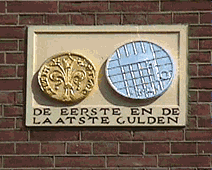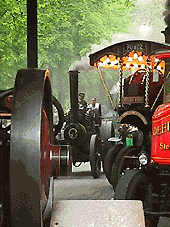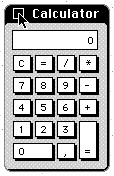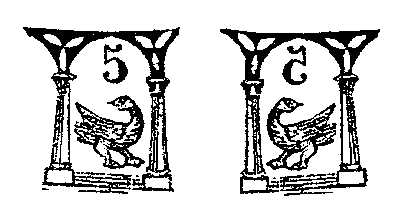Notes, Quotes, Provocations And Other Fair Use III
Amsterdam 1998
June 4
Chaotic day, when it was supposed to be the beginning of some kinda new order: I hired Karien to re-arrange my archives and documentation, work on the estate. My mailbox at xs4all was corrupt all morning and the Snelnet ADSL is unreliable. Amra was here to clean the house and Heleen and Kristel to work with Gilberthe. When my mail came in again, I found out from Stephen that Exit Art lacks funding to do the installation in September. Meanwhile the site is going up June 18... Nice deadline all of a sudden, maybe overlooked it. Since nqp#3 is filling up I'll skip to #4 from tomorrow.
June 3
I'll be chairing a one day symposium at media-GN, June 26: The Market is the Medium. First Q: So, where's the meat? Two: when the money's the medium: re:facing currencies. Three: potlatch markets?
'The First and the Last Guilder'
1998 Rabo Bank Memorial Tablet
I'm labeling our early 18thC warehouse front and back façades (which face different streets—Entrepotdok and Laagte Kadijk—the place is a block deep) with dedicated, fat, orange URLs. Thus I can perform some information on this site that is site-specific in the real world, for my neighbours and the occasional passer-by. It is part of the URLification of our environment and preludes a situation of the built environment as described May 29: empty but for information. Early Information Age. My contribution to 'Omnizone' (web project and exhibition this fall in Exit Art NYC, organized by Yu Yeon Kim and Stephen Pusey of Plexus, http://plexus.org) is entirely based on the principle of spilling URLs in the real world: building Enclaves Exquises.
June 2
Visited Arboretum Belmonte. The garden is luscious this time of year. The evening sun set it on fire. When I walked Blinky I ran into rabits and Mike. That's what the garden definitely is for. Pause. Period.
June 1
I remembered my concluding notes on the occasion of the 'Beyond Ethics and Aesthetics' symposium last fall in de Unie, Rotterdam:
Museification and the Age of Information
24 October 1997 Hit List
'Opening/emptying the museum' is a (traditionally—in modern art eg. Smithson, Kaprow) tempting image. A different 'memory economy' to empty the museum for its knowledge, its habits: its capital (bring it into circulation with a selected audience that invests intelligence as a contribution to the onto-collection), seems imaginable now: the museum as a workforce (c.i.w.) keeping a 'collection' culturally and economically alive, fit. Not hesitating to merchandize.
- DeMuseification Turning the Museum into a Knowledge Base
- every part of the problem made part of the solution
- selective sale/return, of museum stored artefacts, to the estate of the artist
- preperatory informationalization (exhaustive recording)
- museum and artist's estate contract commercial rights for selected media
- further digitalization of the museums memory and capital
- build the collection as a (image/text) database
- the physically and informationaly distributed museum
- connected academic databases
- invest r&d in storage/processing/views/ access/mediation/delivery
- invest r&d in interface design: build the new `frames' (with the military) (`fresh colonization' and `mass elitism' need sophisticated cultural weaponry)
- hire agents/mediators beyond the curatorial
- produce presentations, produce art, produce knowledge
- selected users are served selected access
- customization and grand narratives
- serve individual and/as cultural memory
Museums as cities as workforces as learning environments—now there's a 21C curriculum for the arts. Artibus Alma Mater XXI.
'Museophobe' Quatremère de Quincy (1755-1849):
- To displace all these monuments, to gather up in this way the decomposed fragments, to put the debris in a methodical order, and to make of such a gathering a practical course in modern chronology: this is, for a practical reason, to constitute ourselves as a dead nation; it is to attend our own funeral while we are alive; it is to kill Art to write its history; but it is not history, it is an epitaph.
May 31
Il faut répéter l'histoire: un homme dans l'espace!
May 30
...setting free the wheels of industry...
May 29
I plan to visit the Stoom98 (steam power festival) at the Dutch Railway Museum in Utrecht, with Rolf, tomorrow. For a previous theatre and arts Festival aan de Werf (1994?) one of my plans was the installation of a steam roller in the heart of Utrecht, to be kept under pressure but immobilized 24/24 for a week in a row, the duration of this festival: all dressed up and nowhere to go (except back to the museum where it belongs), hissing in quiet resignation, performing living dead. Dead Language. More evaporation. Remember the time not so long ago when the sound of a typewriter was the opening tune of the Brandpunt news show on Dutch television? It also evaporated into museosphere. Became world music: the yodel of past communication media echoing.
Opening the museums would be like opening psychiatric hospitals. For the heck of it!
A project for a city like Amsterdam: removing all public and commercial information from the streets, migrating it to the networks (leaving A. emptied like Paul and I found Vilnius in 1994). Invisibly embedding the technology in the architecture. Ubiquitous computing. Our improved PDA's will pick up the city's busy signals. We can tune them to any source. Ubiquitous scanning. Fat layers of information on top of Amsterdam 'through the ages'.
May 28
Picked up Guido Morselli's 'Dissipatio HG' ('The Evaporation of the Human Species') again, after several years. Just what I need. 25 years after finishing the book, just before his suicide at the age of 61, Morselli has 26 hits on AltaVista, word count 'about 32'. With Bill McKibben we shall call ours the Age of Missing Information. An Age of Evaporating Information.
May 24
Uploaded Virtual Platform embarrassing brouhaha press release excerpt to the Vormgevingsinstituut's website, on their recommendation to the advisors for the forming of a new government: 'the cultural sector can contribute in a valuable way to a balanced information society'; 'it can do this by using the expertise with designers in the field of accessible hard- and software. The Dutch reputation for design and typography can also offer interesting economic perspectives to software development'; 'artists can play a crucial role in the development of creative applications for the electronic industry'; 'doing so art counterbalances the commercial marketing of the entertainment industry, which is directed at consumptuous passivity'; 'necessary condition for these improvements is the governmental recognition of the electronic arts and new media as a cultural discipline by itself, and its consequent exceptance in the subsidiary structure'. Welcome to State Art 2.0—abroad they love us for our folklore. How obvious to continue it in the new era.
May 23
Jorinde Seydel mailed me aninterview for the Amsterdam 2.0 project, edited by Maurice Nio cs. (following up on the Phantom Railroad project. Also Paul's still involved). No easy answers. I know I hate to see A. turn into the backdrop for any flash crowd and often wonder what it makes that I still live here. I'll share my answers with you.
We had a reunion dinner with Jan Nederveen and Merel, and Hans and Rini. Again it was surprising how old friendships are continued like no time passed since the last meeting, 10 years ago? Longer?
May 22
May 21
Just read at Alamut that today we celebrate the 16th aniversary of Paul's arrival in Nederland. Congrats!
Another crack in the 24/24 economy: Ascension Day. Artis Natura Magister (the Zoo) opposite our house is packed since 8.30am but the city and stock market are closed. Last night we had the Juventus-Real Madrid soccer Champions League final. Italian, Spanish and Dutch tifosi roamed the streets and canals of Amsterdam all day, equally stoned, to meet for their party in the Arena stadium. The Amstel beer brand handed out high hats in beerglass-on-mat shape. The city as carnival, flash crowds, the temporary migration of thousands of Italians and Spanish, here today gone tomorrow.
Around noon I went to the Institute to collect my mail, especially bounced Doors mail and to look for reactions. About 10% bounced, 2 unsubscribers, 11 new subscribers and a handfull of personal reactions. Of course we're now eagerly waiting for the first registration.
May 20
Doors 5; il Gioco dell' Oca. Counting in all directions.
Today Will Wright (Maxis founder and chief designer, of SimCity and beyond: SimCity3000 is shipping) confirmed for Doors 5, the first bulk mail was sent out to the infolist of currently 1074 names, and counting. Still every day 2-4 are added. Amy Bruckman was quick to react: within 2 minutes she sent us her 'Bravo!' Doors 5's in business. John T. and I get all excited over our Doors spam. Immediately he wants to add more addresses.
My own and 23 others' 'snelnet' (ADSL) connection suffers a 'burnt concentrator'. The new hardware has to be flown in from Israel... Meanwhile KPN mechanics do some ad hoc concentrating themselves. It makes my connection stutter.
May 19
Up at 5.30am. Visit media-GN. Rode up with Paul. On the train we discussed options after Jules van de Vijver's leave for Breda. Groningen means politics as usual. Isn't it ironic that the 21C Art School debate is organized by the Minerva Academy, with its indeed long history of political pathologies. Media-GN can do without Groningen politics, they just want the best new media curriculum (discussion at Minerva shouldn't be about the future 'school', but about the 'curriculum'—about competencies and markets that subvert politics), for artists and managers alike, in a project oriented, multi-disciplinary program.
The GN students are a good pick as before. This group is remarkably coherent in its desire to push the interaction outside the box. I'll be returning monthly for the rest of the year.
May 18
Doors 5 program team meeting at the NDI. 22 speakers have confirmed so far and at this aniversary Doors finally after 4 invitations to the previous ones Brenda Laurel is among them. Variety rules as usual, other speakers range from Kaos Pilot's Uffe Elbaek to MIT Toys for Tomorrow's Mitch Resnick and Joystick Nation heroette J.C. Herz. Good Gameplay.
May 17
So much for fresh starts... it's Sunday, stupid: the Seventh day, as in Otto Friedrich Bollnow's comforting phenomenology ('Neue Geborgenheit, 1955'), 'Sunday the world is tidy'. Not in the 24/24 economy. We nevertheless cleaned up our seaside camping site under a burning May sun. 24/24 strange weather indeed...
May 16
After having lagged a week-and-a-half, a fresh start might keep me on the job, nqp#3 opening today.
feedback
up
ATTENTION CURRENCIES
NotesQuotesProvocations&OtherFairUse:
best bits from correspondencies, attendencies and collected hard copy
SINCE 1998
Amsterdam 2.0
Doel interview
Het gaat er in dit interview om te ontdekken op wat voor manier de stad Amsterdam haar inwoners beïnvloedt, en op wat voor manier de inwoners de stad gebruiken. Het gaat er niet om een psychologisch portret van de geïnterviewde te maken, maar om een soort psychologische kaart van Amsterdam op te stellen en te bezien hoe die per persoon verschilt en overeenkomt.
Naam:
Beroep:
Geboorteplaats en -datum:
Inwoner van Amsterdam sinds:
Voormalige woonwijken in Amsterdam:
Huidige woonwijk:
1. Welke periode uit de geschiedenis van Amsterdam zou je willen bezoeken als je met een tijdmachine terug kon in de tijd? Waarom zou je juist die tijd met eigen ogen willen zien? En welke (historische) gebeurtenis in Amsterdam had je zelf mee willen maken? Hoe, waar en wanneer ervaar je het verleden in de stad het sterkst?
2. Hoe zou jij het Amsterdam van honderd jaar geleden beschrijven? En hoe hoop je dat de stad er over honderd jaar uitziet? Zijn er plekken in Amsterdam waar de toekomst al zichtbaar is?
3. Heb je wel eens een verhevigd realiteitsbesef (dit, hier, nu) in Amsterdam, dat je opeens beseft waar je bent en in wat voor stad je leeft? Wanneer overkomt je dat? Kun je dat zelf ook oproepen door iets bepaalds te doen, te laten?
4. Raak je wel eens plotseling ontroerd in of door Amsterdam? Wat voor momenten zijn dat, en zijn die verbonden aan plekken in de stad? Zijn er plekken waar je eigenlijk altijd vreselijk van de stad houdt, of waar `alles klopt' voor je gevoel? Zijn er specifieke plekken in de stad waar je heengaat om je tevreden te voelen, waar het fijn is, of waar je vrolijk wordt? En wat is het gekste dat je ooit is overkomen in Amsterdam?
5. Wat is het naarste dat je ooit is overkomen in Amsterdam en waar gebeurde dat? Welke plekken in de stad associeer je met de dood, met angst, en met geweld? Zijn dat plekken die je mijdt, en zo ja, hoe bewust vermijd je die? Mijd je nog andere plekken? Of zoek je plekken op waar het gevaarlijk is, en welke zijn dat dan? Bestaan er plekken waar je de stad haat?
6. Ken je plekken in Amsterdam waar je het lijkt of twee of meer werelden met elkaar botsen, waar twee tegenstellingen pal naast elkaar bestaan (arm/rijk, dood/leven, verschillende culturen), zonder dat ze vermengen? En ken je plekken waar ze mengen en iets nieuws creëren?
7. Zijn er plekken in de stad waar je eigenlijk niets van weet, een gebouw waarvan je nooit hebt begrepen wat het daar doet, een schutting waar je altijd nog eens overheen wilt kijken, een plek waar alleen anderen schijnen te komen, maar jij nooit? Zijn er plekken/gebouwen/monumenten die je lange tijd nooit hebt gezien, maar die zich opeens openbaarden? Hoe kwam dat?
8. Waaraan herinner je je plekken, gebouwen in de stad? Wat moet je er hebben meegemaakt, wat moet je erover hebben gehoord, hoe moet het eruitzien, wie moet er je over verteld hebben, enz., wil je je het herinneren?
9. Als je door de stad loopt, fiets, rijdt, wat zijn dan je zichtbare of onzichtbare oriëntatiepunten in de stad? Waar let je op/kijk je naar op een van je vaste routes door de stad? Kun je zo'n route beschrijven? Waarom neem je sommige straten wel, en andere niet? In welke stemming kies je welke route en waarom? Op welke van je zintuigen maakt de stad de meeste aanspraak?
10. Welke regels van de stad overtreed je regelmatig? Welke regels moeten er volgens jou worden afgeschaft? Als je een nieuwe wet/verordening voor Amsterdam mocht uitbrengen, hoe luidde die dan?




